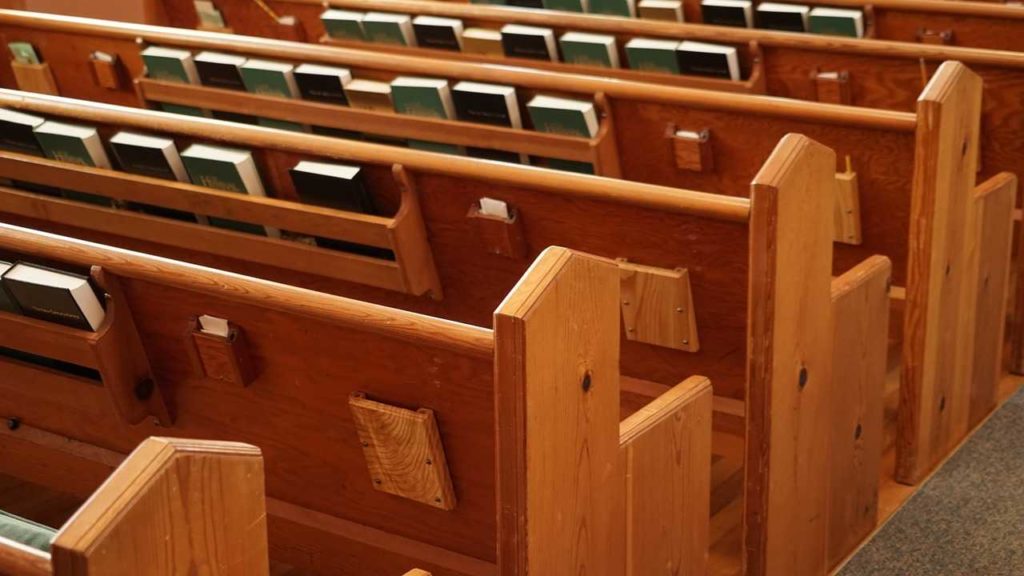
WASHINGTON — The U.S. Supreme Court has ruled that New York’s “very severe” limitations on church attendance in the state’s COVID red and orange zones violate the First Amendment right to free exercise of religion and are not the least restrictive means of preventing infections.
“Not only is there no evidence that the applicants have contributed to the spread of COVID–19, but there are many other less restrictive rules that could be adopted to minimize the risk to those attending religious services,” the court stated in a 5-4 opinion Wednesday evening, with new justice Amy Coney Barrett being among the majority.
Chief Justice John Roberts sided with his liberal colleagues.
In October, Gov. Andrew Cuomo signed Executive Order 202.68, which presented updated regulations for various public facilities, including fitness centers, hair salons, restaurants, taverns and houses of worship.
Churches in orange zones were required to be “subject to a maximum capacity limit of the lesser of 33% of maximum occupancy or 25 people, whichever is fewer.” Those in red zones were “subject to a capacity limit of 25% of maximum occupancy or 10 people, whichever is fewer.”
View the executive order here.
As a result, the Roman Catholic Diocese of Brooklyn and the Orthodox Jewish umbrella organization Agudath Israel of America filed suit to challenge the restrictions, arguing that they treat religious facilities more harshly than secular venues.
They contended that they have followed all health guidelines and have operated at reduced capacity without any outbreaks, and therefore, it cannot be proven that churches need more stringent regulation.
On Wednesday, following unsuccessful bids in the lower courts, the Supreme Court ruled that Cuomo’s restrictions “cannot be viewed as neutral because they single out houses of worship for especially harsh treatment” since businesses deemed “essential” could literally accommodate hundreds of occupants without penalty.
“Stemming the spread of COVID–19 is unquestionably a compelling interest, but it is hard to see how the challenged regulations can be regarded as ‘narrowly tailored,'” the court wrote in its majority opinion, stating that the regulations are the most restrictive to come before the court.
“Not only is there no evidence that the applicants have contributed to the spread of COVID–19 but there are many other less restrictive rules that could be adopted to minimize the risk to those attending religious services,” it said, outlining that the size of the building could be taken into consideration. “It is hard to believe that admitting more than 10 people to a 1,000–seat church or 400–seat synagogue would create a more serious health risk than the many other activities that the State allows.”
The majority stated that while the justices are not “public health experts,” they still believe that “even in a pandemic, the Constitution cannot be put away and forgotten.”
“The restrictions at issue here, by effectively barring many from attending religious services, strike at the very heart of the First Amendment’s guarantee of religious liberty,” they said. “Before allowing this to occur, we have a duty to conduct a serious examination of the need for such a drastic measure.”
And while the area affecting the two organizations at issue had been recently rezoned to yellow and is now therefore under less stringent attendance caps, the majority concluded that the matter warranted an injunction in the event that the region reverted to red or orange — thus causing issue all over again.
The legal organization Becket, which represented Agudath Israel of America, applauded the ruling, opining in a statement that “treating synagogues and churches worse than the pet stores, liquor stores, and department stores also just didn’t make any sense, particularly when Agudath synagogues and Brooklyn parishes have carefully and responsibly followed the rules.”
Cuomo remarked that the matter is moot due to the rezoning. He viewed the decision as a “statement” that “you have a different court” with the addition of Barrett.
“Why rule on a case that is moot and come up with a different decision than you did several months ago on the same issue?” he asked.
As previously reported, in June, U.S. District Judge Gary Sharpe ruled in a separate case that Gov. Cuomo and New York City Mayor Bill de Blasio gave “preferential treatment” to mass protests over the death of George Floyd by supporting the crowds while maintaining restrictions on the size of religious gatherings.
Become a Christian News Network Supporter...


